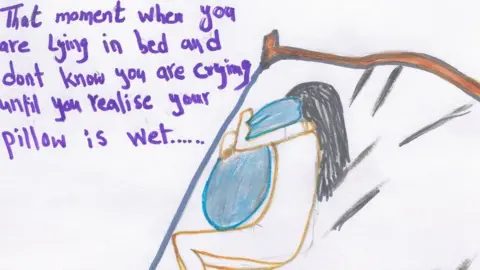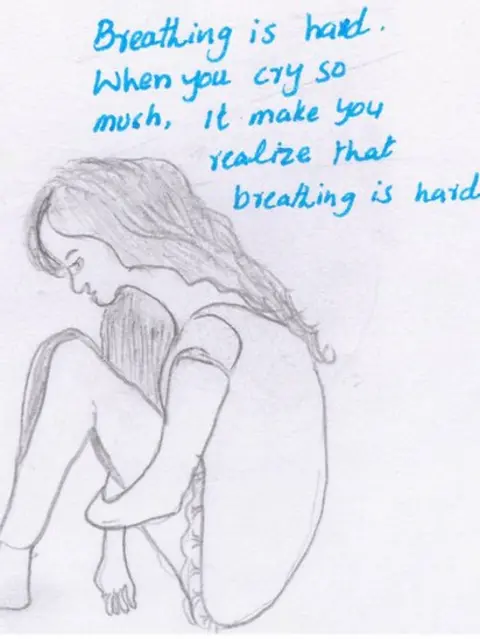The women who end up homeless after fleeing violence
 BBC
BBCThousands of women in England are fleeing domestic abuse only to find themselves homeless, government figures show.
According to abuse support charity Women's Aid many face further violence while they wait for a refuge place.
Between January and March 2019, some 6,000 people became homeless due to domestic abuse, according to official statistics just published.
This was one in eight of the number of known homeless people in England.
Theresa May's government introduced a Domestic Abuse Bill in January which aimed to give abuse victims automatic rights to access housing firstly in a refuge and then in longer-term accommodation.
It had its first reading in Parliament before it was prorogued, but it is now unclear whether it will be brought back in the next session.
Following an intervention by the former head of the family courts Sir James Munby, Prime Minister Boris Johnson has said in a Tweet he will bring back the legislation in the next Parliamentary session.
'Hellhole'
A report by Womens Aid on its work with abuse survivors, called No Women Turned Away, describes the insurmountable financial difficulties survivors can face when fleeing domestic abuse.
One described going from one "hellhole" to another.
The charity helped 309 women in England struggling with homelessness as a result of domestic violence during 2019.
They were given pseudonyms to protect their identities so they could safely share their experiences in the report. They were also asked to draw images reflecting their experiences.
Emira said: "I have no money at all, for my daughter, for her food, for her clothes, it's getting colder day by day."
Safa also told how she struggled to feed herself and her children in the hotel where she sheltered for three months.
"The money I got from social services was never enough… I would get a portion of chips and the children would eat and I would stay hungry," she said.
"It was very expensive [in the hotel] and I couldn't go out to get food."
'Help from strangers'
The report tells how many women had to endure unsafe living arrangements, overcrowding, broken friendships and further abuse and discomfort while sleeping on other people's sofas.
Emira, who, together with her young daughter, was sleeping on the floor of her friend's son's bedroom, told how sometimes the boy would wake up at night and scream: "No, no, no, they can't live in my room, they can't stay here".
Another participant, Nidhi, who was fleeing her abusive husband with her teenage daughter, had to rely on the help of a complete stranger to find a bed for the night.
"I've got nobody. I've got no relatives, nothing, and I was scared about what his family would do," she said.
"And we just sat at a bus stop. It was like a gift from God... this woman that we don't know, we've never met, just came past, saw our suitcase."
They told her something of their situation and ended up staying with the woman for the night.
Another woman described how she ended up staying with parents of a friend of her son's from school whom she barely knew.

The charity blamed a shortage of bed spaces in refuges and support services.
Acting co-chief executive of Women's Aid, Adina Claire, said it was scandalous that in 2019 women fleeing domestic abuse still faced the terrifying prospect of returning to their perpetrator or facing homelessness.
"We are facing a chronic shortage of bed spaces in specialist refuge services, and this is causing unimaginable suffering for women at a time when they are most in need of support."
